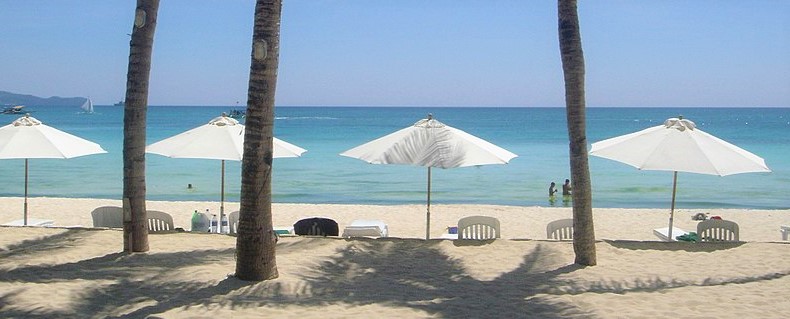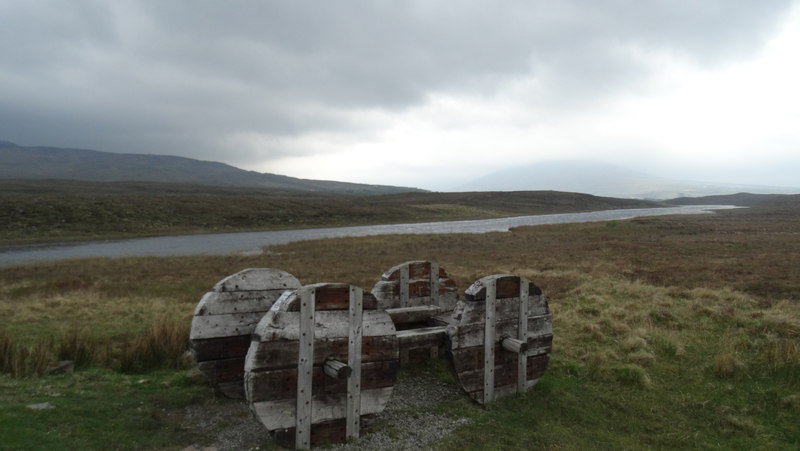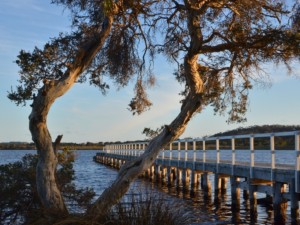Good news in tourism March 22 – 28, 2020

Published Sunday to be ready Monday, “Good news in tourism” is the perfect pick-me-up for the start of a new week in travel & tourism. And go!
“GT” stuff first (scroll down to skip):
The “Good Tourism” Blog will push through this COVID-19 crisis, bringing you the usual links to positive industry news and ideas via “Good news in tourism …” (proudly established December 1, 2019), “GT” Insights (inspiring since 2017), and “GT” Destinations (NEW!).
NOW The “Good Tourism” Blog offers you and/or your organisation a complimentary public relations and brand-building opportunity. It’s free-of-charge but please take it seriously as it will be an investment of “GT’s” time proofing, publishing, and promoting your ideas as much as it is an investment of your time writing them down. (Treat it like a partnership that could lead to friendship.)
So if your work-related activity has slowed or stopped due to coronavirus COVID-19 and you have a lot of free time, it might be a good time to reflect on your vision, achievements, mistakes, and lessons learned. Tell the story of your “Good Tourism” journey. Share your “Good Tourism” Insights (PDF).
Meanwhile, please subscribe to “GT’s” weekly e‑news (it’s free) and follow “GT’s” various socials, such as “GT’s” new LinkedIn page.
Community leadership during the COVID-19 crisis
At writing this segment, your correspondent had just spoken to Chris Flynn of “GT” Insight Partner the World Tourism Association for Culture & Heritage who said the supermarket shelves in his corner of Australia’s largest city, Sydney, were still being sold out of certain goods every day due to coronavirus fears.
In your correspondent’s remote corner of Western Australia, however, the local independent grocer is going above and beyond to ensure that there is enough food and essential supplies for the local community. (Other small towns across Australia have experienced shopping raids by hoarding city-slickers and tourists passing through.) Measures taken in Walpole include prioritising the elderly and the most vulnerable. Furthermore, only locals or those who have completed self-isolation may shop in-store. (Recent arrivals to the area can have supplies delivered to them.) The rural community centred around this tiny town is rightly appreciative and proud of their local supermarket.

For forgoing fast and easy profits by putting the community first — and for being a long way ahead of shire, state, and federal governments in recognising and responding to problems — “GT” gives a big shout out and thanks to Neal Griffiths and his team at Walpole IGA Pioneer Store, Jason & Chantelle Calleja at Fours Sisters Coffee & BP, and all the other local businesses who are doing the best they can, including the tourism-reliant businesses collectively represented by the Walpole-Nornalup Visitors Centre.
Thank you!
Meanwhile, across the Indian Ocean to the north and west of Walpole, “ecotourism operators in several parts of India have called for building community resilience as they take stock of losses amid the coronavirus disease (COVID-19) pandemic […] ecotourism operators and grassroots conservation workers involved in ecotourism have risen up to the challenge of stopping further spread of the viral disease by conducting awareness campaigns for their local communities”.
Community-led tourism
Crisis or not, in good times and in bad, for richer or poorer, and all over the world, tourism ministers, destination marketers/managers, lobby groups, associations, consultants, academics, media, and captains of the tourism industry can learn much from the example these people have set:
Forgo easy profits. Put the host community first!
Last week’s “GT” Insight post about community-based destination planning as a vaccine or treatment for overtourism (and other ills) attracted interesting comments from Geoffrey Lipman, co-founder of “GT” Insight Partner SUNx — Strong Universal Network.

Prof Lipman wrote: “I truly believe the local stakeholder and governance override is taken care of in the “green” (SDG tagged) element.……the 17 goals/ 169 targets/ 200+ indicators reflect the best future for everything.”
(For full context, please read the post and comments.)
Your correspondent is highly skeptical. How many layers of government are there between a host community and the United Nations’ 17 Sustainable Development Goals?
But disagreement between “GT” and its partners is okay as far as “GT” is concerned. “GT” is a platform for orthodox and heterodox views and welcomes civilised debate among fellow travel & tourism stakeholders. That’s the whole point! One cannot be “truly sustainable” and “sincerely responsible” without considering every angle.
You are a tourism stakeholder — yes, YOU! — so what’s your view? Join the conversation.
Do you disagree with anything you have read on “GT”? Comment below or share your “Good Tourism” Insights. Diversity of thought is welcome on The “Good Tourism” Blog.
If you find “GT” content inspiring, interesting, somewhat amusing, or at least different then surely it’s worth a streaming service subscription or something lockdown-appropriate … Please …
COVID-19 from the top
The United Nations World Tourism Organization (UNWTO) launched the hashtag campaign “#traveltomorrow”, which is cute. The “leading international organization in the field of tourism” also announced that it would pick winning ideas for tourism industry recovery and public health! Returning to more familiar territory, UNWTO then dazzled us with the daring prediction that international tourism arrivals would fall this year. Clever.
To their great credit, however, UNWTO has opened up its e‑library to everyone for free until the end of April.
Other “leading” organisations have been conspicuously quiet, including one of your correspondent’s former employers.
The European Tourism Manifesto joined the World Travel & Tourism Council in putting its hand out on behalf of its members to demand financial assistance from taxpayers. The ETM also wants visas to be simplified, traveller’s taxes of various sorts reduced or waived, and destination marketing budgets increased.
This isn’t particularly good news, is it? It is an industry lobby group doing its job by asking for special treatment on behalf of its members. (Psst! The most powerful and effective lobby groups do that sort of business behind closed doors rather than make a public song and dance about it.)
More interestingly …
The Caribbean Hotel and Tourism Association (CHTA) urged its stakeholders to take advantage of tourism industry-oriented resources set up to contain the spread of COVID-19, and to remain optimistic.
In the USA, the Hawaii Tourism Authority set up a command center in the Hawai‘i Convention Center to support, coordinate, and execute state and county directives. Furthermore, the Center and hotels are “talking to Hawaii Emergency Management Agency officials about offering space for emergency use.”

Despite the train crash that is tourism in crisis, the rehabilitation of Boracay Island in the Philippines remains on track. Road and drainage infrastructure is underway as planned. And the roads already completed are “appreciated by tourists and residents” alike.
The Tourism Revitalization of Icons Program in Nova Scotia, Canada continues to improve tourism infrastructure through the crisis. The program involves CAD 6 million (USD 4.27 million) over three years (up to 2021). “Site recipients include Peggy’s Cove, Halifax Waterfront, Cabot Trail, Bay of Fundy, including Annapolis Royal.”
Optimistic officials in Bangladesh expect Sabrang Tourism Park, the country’s “first tourism-based special economic zone”, to start welcoming visitors this year. Construction of key facilities is ongoing. “The crisis is temporary […] development work is permanent.”
“The crisis is temporary […] development work is permanent.”
Paban Chowdhury of the Bangladesh Economic Zones Authority
Kara Neil, head of academics at Vatel Hotel and Tourism Business School in Rwanda, argues that the hospitality & tourism (H&T) workforce is “at the frontline” of global health crises therefore “there is an urgent need for H&T schools to integrate global health training into their curricula”.
Central China’s Henan province plans to lend at least CNY 1 billion (USD 141 million) to “help revive the cultural and tourism sectors that have been hammered by the novel coronavirus outbreak”.
Culture & heritage
Community members, urban and regional, all across Australia are “fundraising, petitioning, and enlisting advocacy groups to persuade councils to save historic buildings”. As a result, councils are “prioritising their heritage buildings as they are ‘real draw cards for tourism and economic development’”.
Botswana is boosting investment in culture and cultural tourism, including plans to establish a National Arts Council and construct a state theatre.
Egypt’s Minister of Tourism & Antiquities Khaled Al Anani and Minister of Transport Kamel Al-wazir agreed to study how to connect Red Sea beach tourism with Nile Valley cultural tourism via overnight sleeper rail services between Hurghada and Luxor.

Tracks & trails
Wales is working on a forest that will “run the length and breadth of the land, connecting existing protected woodland environments with large-scale tree-planting projects”. Inspiration for the national forest was the Wales Coast Path, a hiking trail that every year “attracts millions of tourists”.
The 42-km walking and cycling trail, the Great Western Greenway in Ireland, is 10 years old. And there are plans to extend it. As “one of the most important pieces of tourism infrastructure ever developed in Mayo” the project would never have happened “but for the cooperation of the 162 landowners along the route”. And it has had a “hugely positive impact on local tourism and businesses”.
Have a good week!
Featured image (top of post): A masked and gloved couple in love at the 2010 Carnival of Venice. By Frank Kovalchek (CC BY 2.0) via Wikipedia.
To help your correspondent keep his energy-efficient lights on, please consider a private one-off gift or ongoing donation. THANK YOU to those who have! <3
Disclaimer 1: It is “GT’s” policy to fully disclose partner/sponsor content. If an item is not disclosed as partner or sponsor-related then it will have caught “GT’s” attention by some other more organic means. Partner with “GT”. You know you want to.
Disclaimer 2: None of the stories linked from this week’s post have been fact-checked by “GT”. All terminology used here is as the linked sources used it according to the knowledge and assumptions they have about it. Please comment below if you know there has been buzzword-washing or blatant nonsense relayed here, but be nice about it as the linked sources might get offended. (“GT” won’t.) And as for “GT” bringing it to your attention so that you might be the one to set the record straight, you are welcome! 🙂





